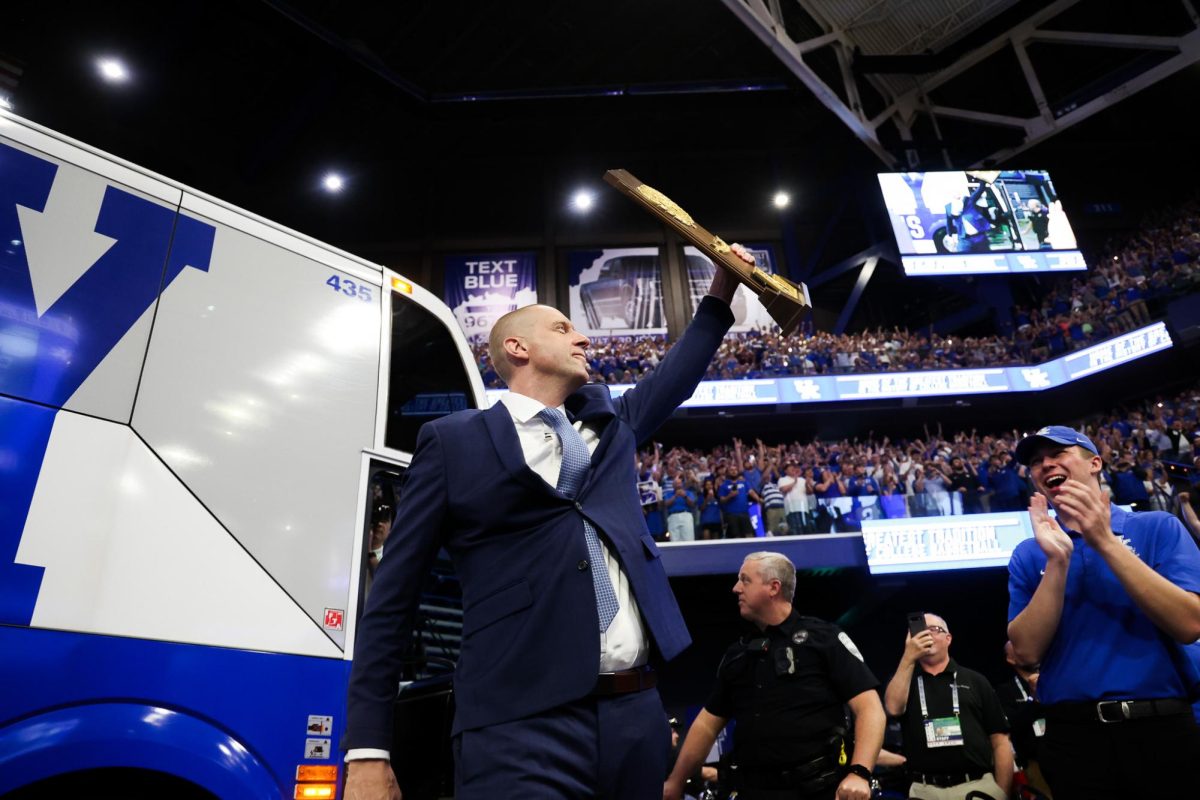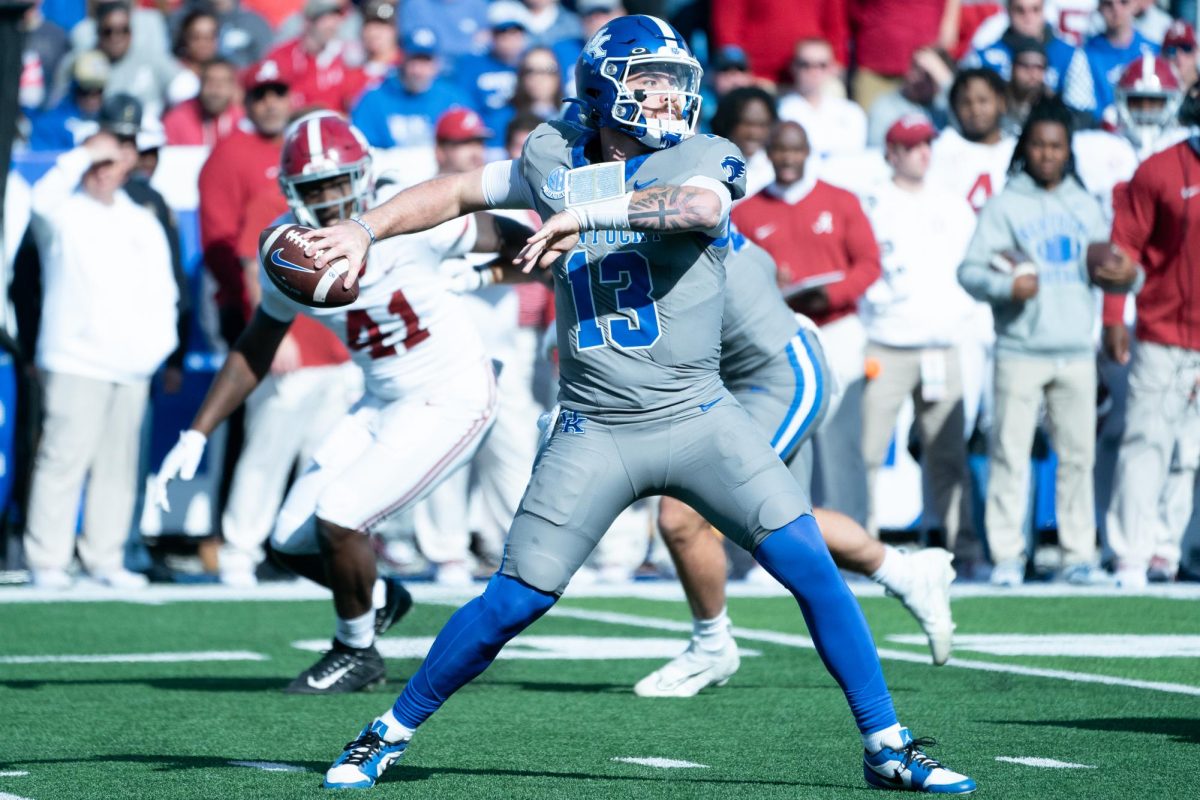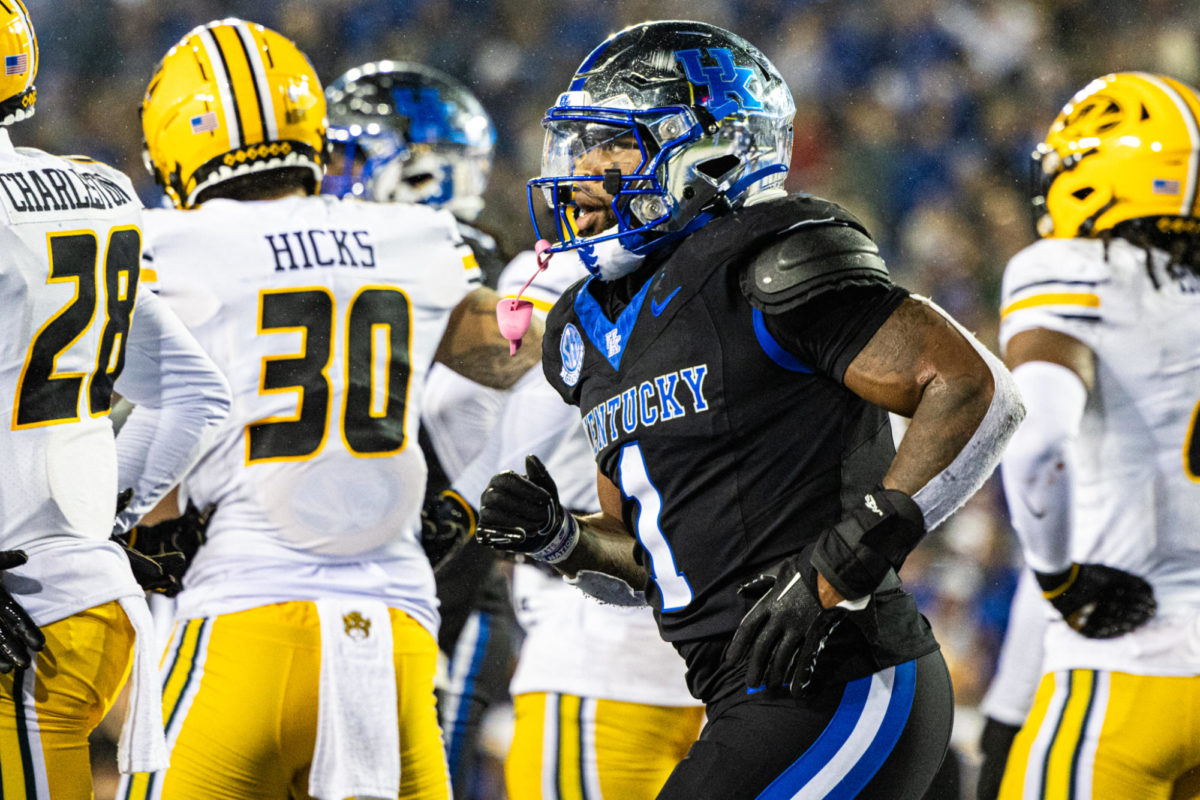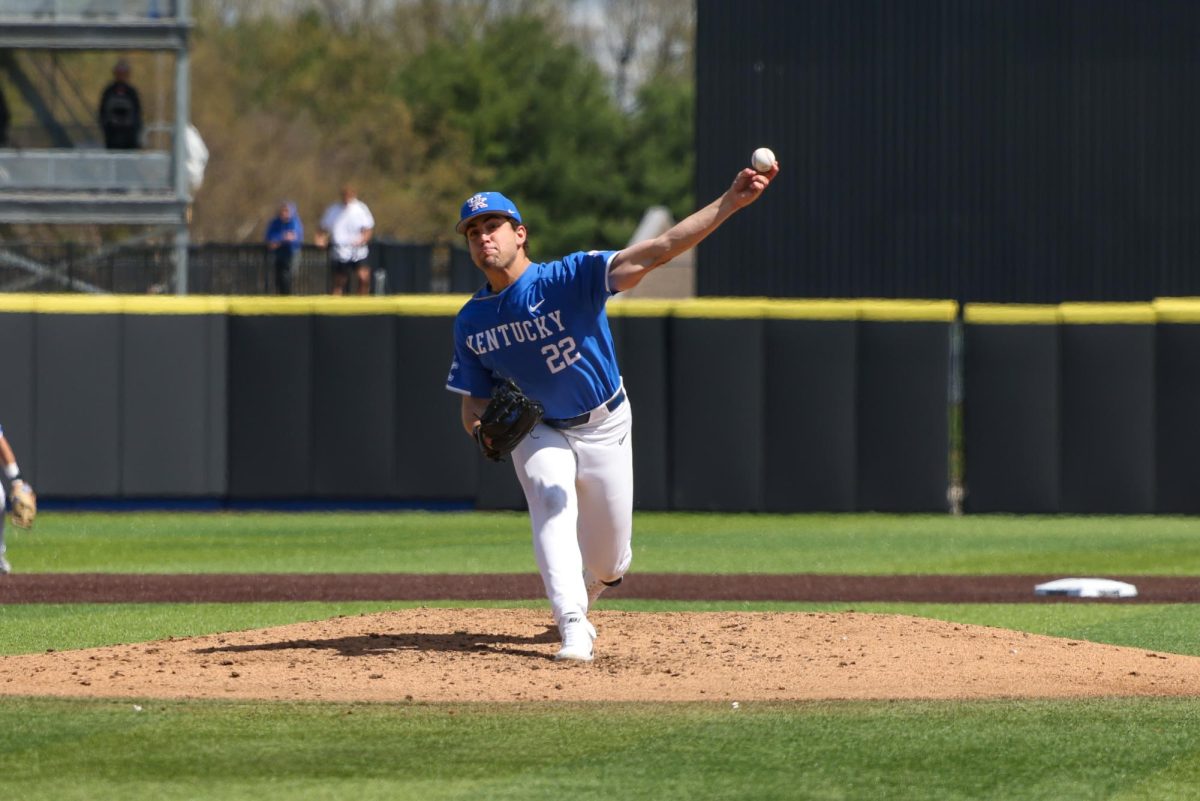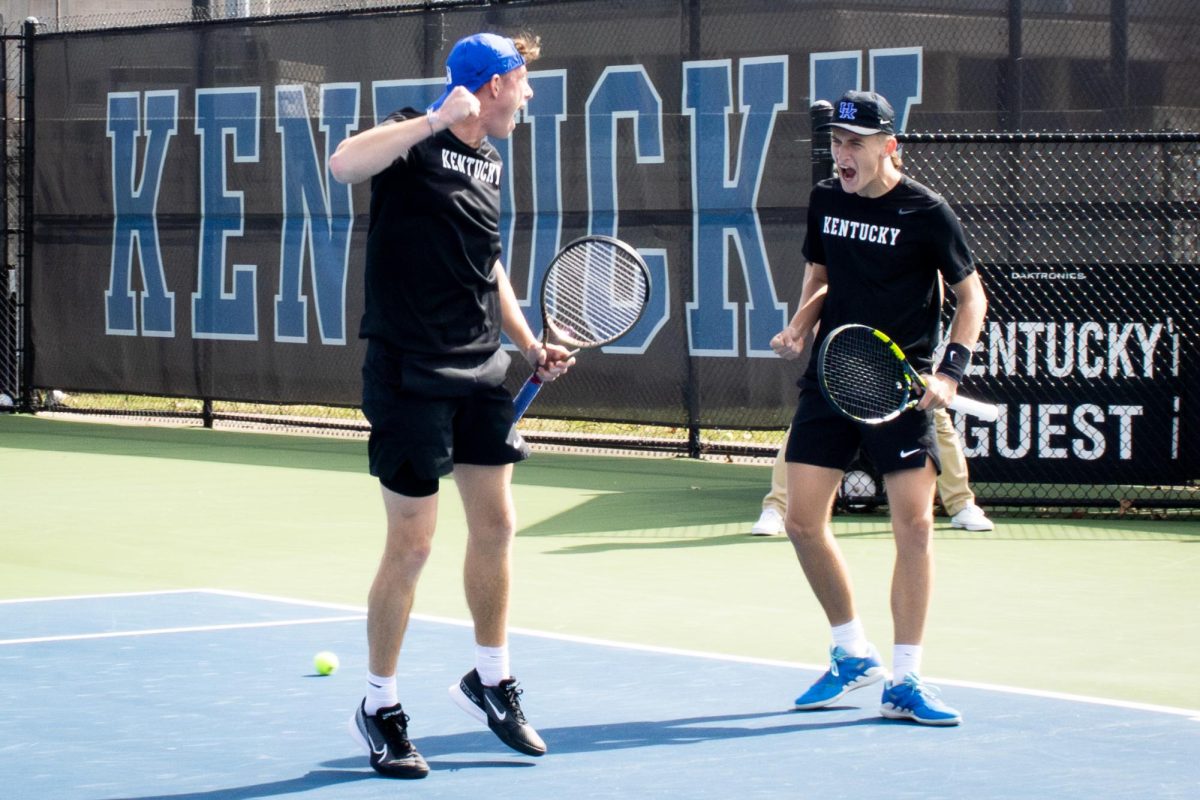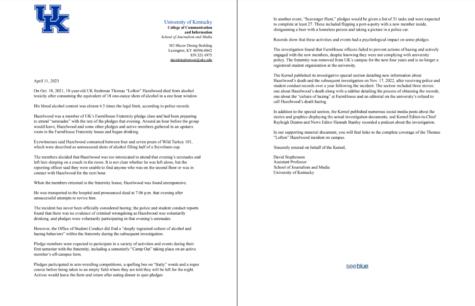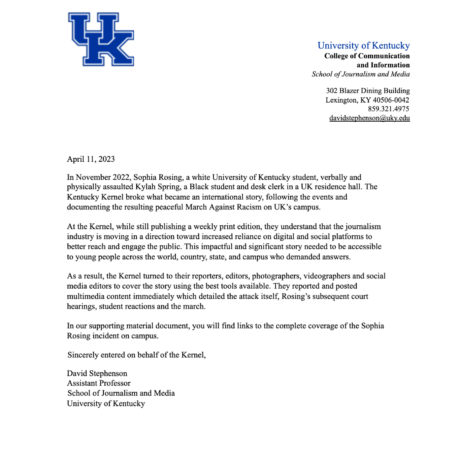Safety unfair casualty of upholding UK’s image
September 21, 2016
President Capilouto has made many remarks about how important student safety is to the university.
When the university releases statements about student safety, it has of late been reactionary to public upheaval, not precautionary.
Two separate close-to-campus incidents, a mugging of two young men walking home from the Euclid Kroger and a home burglary on University Drive, happened over the course of a few hours the night of Aug. 31 and morning of Sept. 1.
No university statement was released about these incidents though.
The Lexington Herald-Leader reported that Lexington police alerted the UK Police Department in August about a serial rapist near campus.
But students had no notice of the threat until UK Police Chief Joe Monroe responded to a viral post that was circulating around campus.
The confusion surrounding the lack of alerts was cleared up when Lexington Police Chief Mark Barnard told students that they communicate incidents near campus or campus neighborhoods to UKPD.
But even though UKPD is aware, they only include warnings or reports of incidents that occur “on campus posing a threat that requires immediate action,” according to Monroe’s email to campus.
It is clear from the already existent line of communication between the police departments that UK has the ability to alert students to these crimes.
But the more they make people aware of these crimes, the more UK has to admit that its campus community is not as safe as it would like students and their parents to believe.
Case in point: the public relations reaction to the unearthing of serious flaws in how the university deals with sex crimes on campus.
When victims of sexual assault and harassment came forward with their story exposing serious issues of how higher education hides sex offenders and the results of their Title IX investigations behind FERPA, the university responded with a refusal to acknowledge what associate professor James Harwood did.
The cover letter the university turned over because of the Kernel’s open records request did not say Harwood’s charges. It just listed two policies he’d violated—policies that encompass a wide range of issues from discrimination to rape.
Instead of responding to the Kernel’s inquiry with transparency about cases like Harwood’s, it has pushed back against its own student newspaper and the Attorney General with a lawsuit in Fayette County Circuit Court.
The Kernel has made it clear to the president through its writing that there is a proper redaction process that eliminates identifying information of victims and witnesses, and any information that would constitute a violation of their privacy rights.
Only after the university felt pressure and criticism from the Board of Trustees, national media, students, faculty—even the survivors who wrote letters expressing their desire to see the university take a step to correct the problem they pointed out—did the President finally take a step to fix this broken system that has victimized college campuses for years.
But as far as letting the public know about other cases, the university has yet to take a progressive stance and let the public know about employees they are aware were charged by Title IX with sexual misconduct violations.
If UK considers student safety more important that its image, then it needs to take a more proactive response to these safety issues.
It is absolutely within its power to increase student awareness about close to campus incidents, through including Lexington PD’s information in the UKPD crime log or in its alerts for ongoing events.
As a university that seeks to be a pioneer of tackling sex crimes on campus with its mandatory safety survey, they need to do more to make students aware of safety concerns on their campus—including being aware of employees charged with sexual misconduct violations.














































